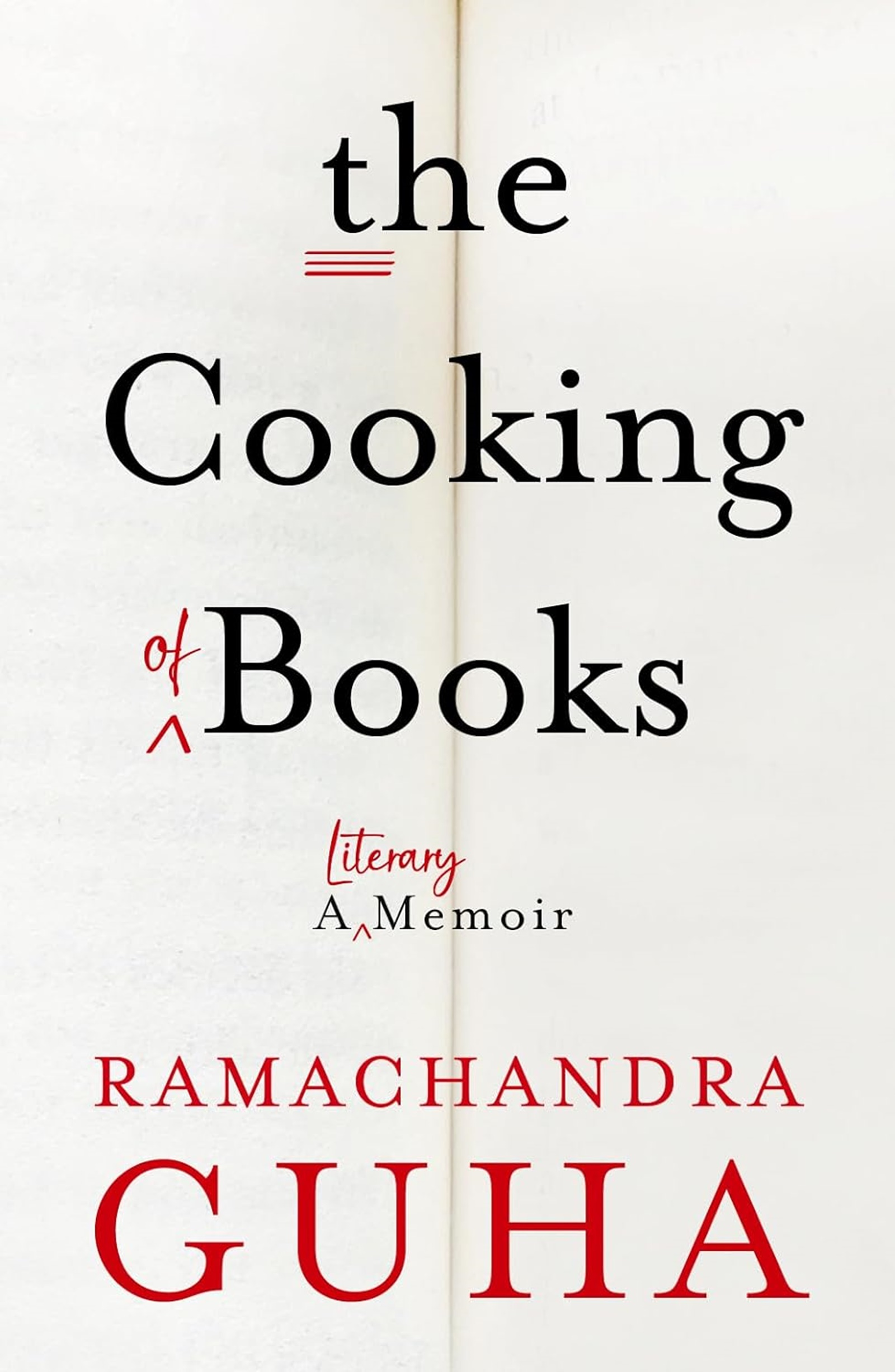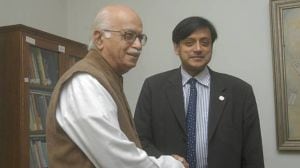In ‘The Cooking of Books’, Ramachandra Guha tips a hat to the chemistry between writer and editor
The books is a personal history of his long association – mostly, literary, but also collegian – with editor-publisher, Rukun Advani
 Dr Ramachandra Guha during the foundation day Lecture for Mahatma Gandhi at sahitya akademi (Express Archives)
Dr Ramachandra Guha during the foundation day Lecture for Mahatma Gandhi at sahitya akademi (Express Archives)The Cooking of Books (Rs 699, Juggernaut) Ramachandra Guha’s latest offering, is a departure from his oeuvre. For one, it is slim. For another, it is a memoir. Specifically, the personal history of his long association – mostly, literary, but also collegian – with editor-publisher, Rukun Advani. And third, despite its intellectual moorings and archival work, it is principally a raconteur’s account – “In July 1973,” the book begins, “a Bengali boy named Amitav Ghosh joined St. Stephen’s College in Delhi, hoping to take a degree in history.”
The book begins in the early seventies, when the protagonists are in college, and Advani, the legend of Rudra North, has absolutely nothing to do with the “badly dressed” “sports type” that was Guha. It ends in March 2019, when no one could possibly know of the pandemic that was about to come; by then Guha is one of India’s pre-eminent public intellectuals and Advani runs Permanent Black, arguably one of the finest independent academic presses anywhere in the world, a legend in the publishing world, his fame burnished by his fabled reclusiveness and his brilliant novelist wife, Anuradha Roy.
In sum, the book tells the story of an entire era. It traces the genealogy of ideas, whether in sociological history or academic publishing – but in the interstices lies the story of India too. Guha’s prose is laced with good-natured humour. (Consider the Table of Contents, with its entertaining descriptions of each chapter: “1. Sportsman and Scholar — How Rukun Advani and I first met, his early antipathy to me, and the college where we studied that quickened and shaped our minds; 2. Finding One Another — How Rukun shed his prejudices towards the sportsman I once was, and warmed to the historian I had now become, and sought to publish my books with the Oxford University Press, where he worked”). Even if you are the sort who mocks this brand of self-referential Stephanian jocularity, full of injokes and born of “elite male privilege” (Guha’s own words in the Preface), you find yourself admitting that the self-awareness that accompanies it in the book and the occasional flashes of self-deprecation make it mostly tolerable, even to Presidencians such as myself.
There is no doubt that Guha occupies a unique place in the world of Indian letters. After his initial dabbling in semi-professional cricket, he trained as an academic, and his early books were elaborations of his fascinating doctoral research. It is in these vital years, that Advani, then a rising star at OUP, had the most incisive influence on him, and in shaping his work. For instance, when Guha was advised by an American colleague, who read his first draft of the Elwin biography, Savaging the Civilized: Verrier Elwin, His Tribals and India (1999), to abbreviate the biographical details of his subject’s life and focus on his scholarship, Advani wrote back in his usual acerbic style: “You should DEFINITELY not shorten the early bits. Those are vital for a full understanding of Elwin. It may be that American academia wants a quick story quickly and efficiently told, on the assumption that people’s interest-spans the world over are as short as the average American’s, but I think you should think of your ideal reader as a mix of André Béteille and Mukul Kesavan…”
 Ramachandra Guha’s new book (Source: Amazon.in)
Ramachandra Guha’s new book (Source: Amazon.in)
In response, Guha had replied, “I have started rewriting Elwin from scratch.”
One of the great joys in this book for me are the (fairly copious) extracts from letters between editor and author. Not only were they of value to me as a working writer but as someone who teaches writing as a process and is increasingly interested in the deeper questions of how effective feedback actually works, the depth of Advani’s engagement with drafts of manuscripts, and Guha’s openness in incorporating his inputs, is exemplary. It is also, in these days of hurry hurry-hurry, enormously rare.
In the early years of any writer’s life, the role of their editor is paramount. In his book Mr Shawn’s New Yorker, Ved Mehta outlines this beautifully, while in Diana Athill’s writings we get a sense of this bond from the editor’s perspective. Recently, the Netflix documentary celebrated the five-decades-long relationship between Bob Caro and Bob Gottlieb, author and editor. And while in contemporary India, several editors have had an outsized influence on their authors, I cannot think of any book in India that has attempted to articulate the peculiar chemistry of this relationship. In fact, hearkening back to his academic training, Guha opens the book by identifying this “gap” in the market. In any case, while the autobiography is a well known form in India, the memoir, its distant cousin, that utterly malleable genre full of possibilities and specificities, and dazzling in its repertoire, is hardly ever explored. A book such as this sits alone on its designated shelf.
Anjum Hasan’s novel History’s Angel, which I read last year, opens with a little tableau featuring two men “sitting on worn concrete benches at an outdoor canteen in the university’s north campus, drinking overboiled tea out of paper cups.” While around them students chatter and joke, these two the protagonist, Alif, and his former university teacher, “the Maharishi” – are rapt in “deeper themes”. Alif is vociferous; the Maharishi, full of chuckles. Eventually however, their discussion on the Delhi Renaissance is somewhat interrupted when a beefy scholar “in a saggy kurta and a militantly neat crew cut” saunters past them and mutters softly: “Your time is up.”
As I read The Cooking of Books, I found myself returning to this passage in my head, a fictional summation as it were of a certain deep truth about our life and times; while large numbers of our brother and sister Indians have followed the beefy scholar in the kurta, clearly inclined to the Right, out of the university and into the new tech-influenced world he inhabits where history as a discipline is severely contested, his new India, those of us given to old-fashioned reminiscences – with only the mildest doses of gossip – return to the conversation. Even when we disagree with the specifics, the conversation goes on. This book is for us.



- 01
- 02
- 03
- 04
- 05




























